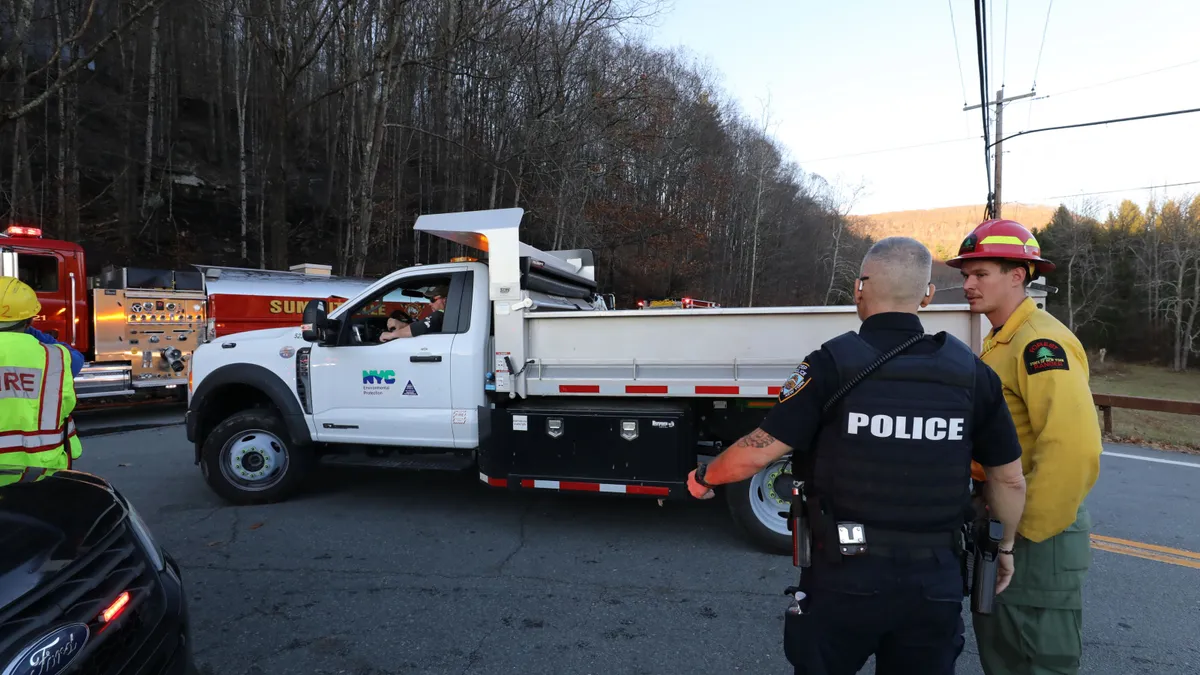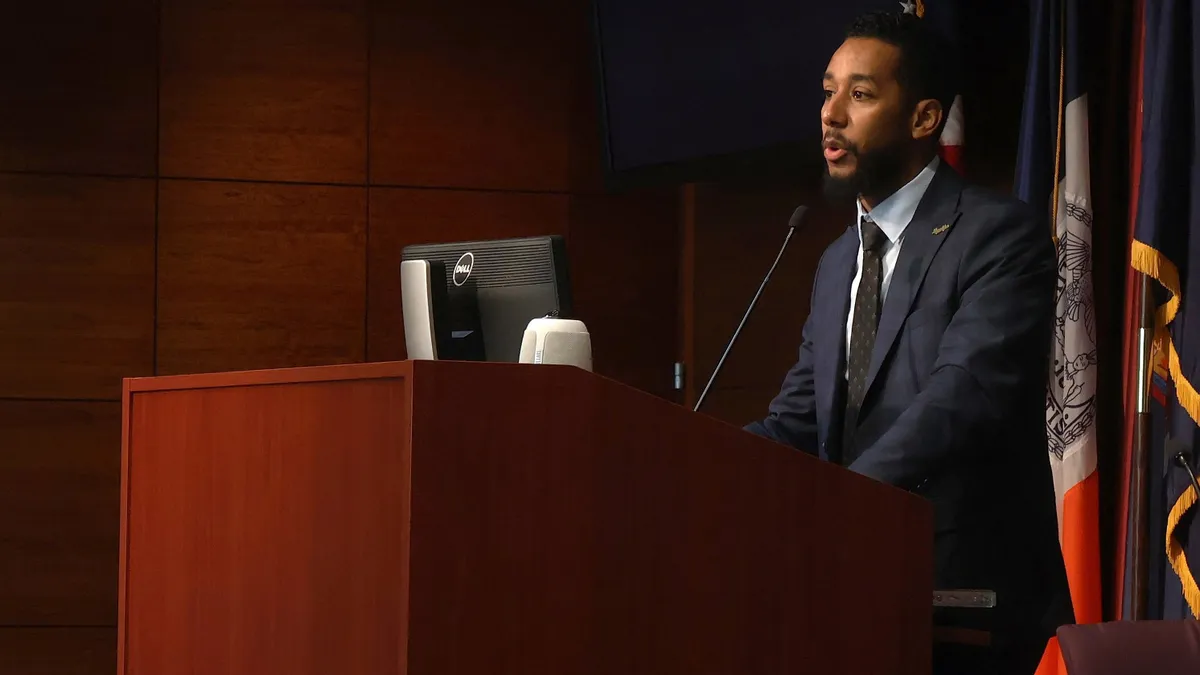Jackson, MS will indefinitely end its residential curbside recycling program on Sept. 1. While this had been forecast for months, the timing surprised many and raised questions about what influenced the move.
The state capital's current collection contract with Waste Management wasn't set to expire until the fall of 2020. The Jackson Public Works Department's efforts to negotiate an amendment to end recycling had been unsuccessful, according to the Northside Sun and Clarion Ledger, and the city was months behind on payment.
In addition to challenging commodity prices, officials cited low participation as a reason to drop the $96,000 per month program. According to council documents, Jackson was paying $1.68 per residential unit for recycling service and $9.27 per month for other waste collection.
That stalemate was broken on Aug. 6, when the Jackson City Council unanimously approved a contract amendment to end recycling and pay Waste Management for 11 months of service. The $1.058 million debt is now due on or before Oct. 31.
Contract questions
No explanation was offered during the meeting as to what had changed, but the vote speaks for itself. The council concurrently approved an extension to Waste Management's residential disposal contract. The initial five-year deal, which wasn't set to expire until late 2021, will now run until Oct. 31, 2025.
Waste Management declined to answer questions about what changed its stance, whether the landfill contract extension was a factor and if similar shifts could be coming to other area municipalities.
"Waste Management has honored the City of Jackson's request to discontinue curbside recycling services within its city limits. This action is effective only within the boundaries of the City of Jackson," said Buford Clark, government and community relations manager, in a statement.
Requests to interview Director of Public Works Robert Miller about the contract timing and funding issues were also declined.
"As of right now, we have no further comment other than the City believes in recycling, but has suspended those efforts and redirected funding that would otherwise go toward recycling, to clean up our illegal dumping sites throughout the city," wrote Director of Communications Candice Cole via email. "The City plans to resume recycling once the market stabilizes."
During the council's public comment period, David Greene of Republic Services said the decision "caught us kind of surprise."
According to Greene, Jackson's move to extend its disposal contract beyond the expiration date limits competition. Republic previously held contracts in Jackson and also operates a local landfill. Without allowing future collection bidders to concurrently pursue the disposal contract and internalize their own waste, Greene said, "You're exposing yourself to the potential for higher rates."
"I just think the city is giving away all of your leverage with this. Now, I understand the wins for your current service provider. It's a win-win-win position for them, without a doubt. For the city, I just can't understand any win that you have from this other than maybe short term," he said. "Even short term, I don't understand it."
Mississippi's recycling outlook
Many of Mississippi's communities are small – Jackson, the largest, has around 165,000 people – and have been grappling with their own financial challenges around recycling.
In response to a recent Waste Dive survey, Mississippi's Department of Environmental Quality (DEQ) said local MRFs were having more trouble selling material due to low commodity values and high contamination rates. This has led to "significant increases" for collection and sorting costs, which are compounded by the longstanding challenge of efficiently collecting enough volume from across the rural state. Certain companies have reportedly been taking material to their own out-of-state facilities, rather than using more limited local options – putting further strain on the system.
Waste Management had been taking Jackson's material to FV Recycling in the town of Sumrall, about 80 miles south, until just a couple of months ago. After FV raised its tip fee, the company decided to start shipping material much farther north to its own MRF in Little Rock, Arkansas. The transportation costs are higher, but the processing costs are more controllable.
FV Recycling President Gene Smith declined to share his current price, but said "we tried to be as friendly as we could" and called it "a very fair tip fee." He maintains the recent decision in Jackson wasn't influenced by FV's rate change.
"It's a poor city. They have a hard time with their infrastructure needs and they began to look for ways to try to save some money, and of course this was a cost to them," he said.
Prior to the shift, FV was taking in about 325 tons per month from Waste Management. Smith said this included both Jackson's residential material and volume from other customers in the region. FV was close to moving sorting equipment up to a company-owned property in Jackson as a way to attract more business, but that was put on hold indefinitely within the past year due to market conditions.
Despite Jackson's financial challenges, Smith feels the move is shortsighted and may lead to higher disposal costs in the future. Will Sagar, executive director of the Southeast Recycling Development Council, agrees. He pointed to strong regional market demand as one of multiple reasons to stay the course.
"It is disappointing to see a state capital drop its recycling program. It is especially frustrating to see the blame placed on the actions of China's import restrictions. Market prices are down, but there remains significant demand for recycled feedstock in the manufacturing sector," said Sagar. "Rather than shuttering a recycling program, it would be in the city's interest to improve the program."
Sagar referenced existing grant opportunities from the DEQ or other organizations as ways cities can help, encouraging optimism.
"Almost weekly, there are press releases or media stories covering expansions in manufacturing that will drive demand for material. Let's hope Jackson will reconsider and be positioned for the coming strong recycling markets."
Following the news, Jackson has directed residents to two local companies that offer subscription recycling service. One, Environmentality, reported receiving a high volume of calls in recent days.
Derek Augustus, co-owner and operations manager, told Waste Dive the company is still small and plans to cap the influx at 1,000 new customers to start. Currently, material is collected in pick-up trucks and trailers before being manually sorted and baled. Environmentality had talked with the city about taking on some business last year when discussions about ending the program first started, and was eyeing the chance for a new collection contract in 2020.
"We kind of saw this coming," said Augustus. "That's why we started getting ready for it and we were positioning ourselves to be able to take it on."
Now, with that new business coming in a year early, Environmentality is quickly trying to expand its capabilities. The company is working with FV to help broker some of its material – although it will be dropping mixed plastics – and remains confident customers are willing to pay enough to cover costs (current rates are $5-10 per pick-up). Environmentality is also looking into ways creating new products from recycled content as a supplemental line of business.
"Our model is not based on the sale of the material," said Augustus, adding that the company's goal is to "work on actually closing the loop instead of shipping it all over the world."




















